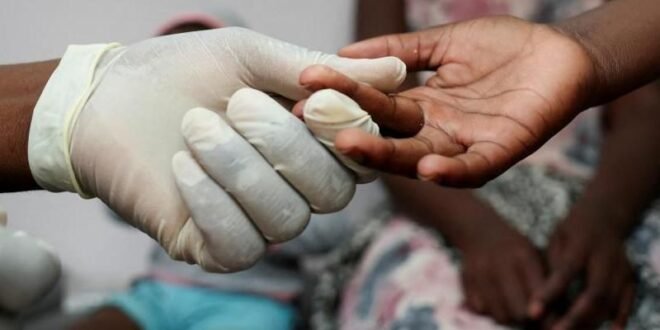The Impact of US Aid Cuts on HIV Treatment in South Africa
Gugu used to collect her anti-retroviral medication from a clinic in downtown Johannesburg that was funded by USAID. However, when President Trump announced cuts to foreign aid earlier this year, she and thousands of other HIV-positive patients across South Africa faced an uncertain future. Gugu was fortunate enough to receive nine months’ worth of medication before the clinic closed down. She plans to visit her local public hospital for more medication once her supply runs out in September.
A former sex worker, Gugu found out she was HIV-positive after leaving the industry. Ten years ago, she experienced a persistent cough and initially thought it was tuberculosis. After treatment failed, she went to a clinic for an HIV test and confirmed her fears. She has been on antiretrovirals (ARVs) ever since. Currently, she works as a project coordinator for an NGO that supports pregnant sex workers in accessing ARVs to ensure their children are born HIV-negative.
Many HIV-positive sex workers in South Africa relied on private clinics funded by USAID for their treatment. However, most of these facilities have closed following the US government’s decision to cut funding. A report by the UN body responsible for combating HIV/AIDS warns that drastic reductions in donor support could reverse the progress made in tackling the disease.
New HIV infections have decreased by 40% since 2010, and over 26 million lives have been saved through global efforts. However, the report cautions that without continued investment, there could be an additional six million new HIV infections and four million AIDS-related deaths by 2029.
Gugu believes that many sex workers may be discouraged from seeking care at public hospitals due to long wait times and poor treatment. She recently visited a local clinic with friends to register her details but encountered a rude nurse who dismissed the importance of sex workers. This experience highlights concerns about the sensitivity of healthcare providers in dealing with vulnerable populations.
The US cuts to HIV funding have raised alarm among scientists and public health experts. A study published in the Lancet medical journal estimated that USAID funding reduced AIDS deaths by 65% over the past two decades. The President’s Emergency Plan for AIDS Relief (Pepfar), launched by George W. Bush in 2003, invested over $100 billion in global HIV/AIDS efforts.
South Africa has the highest number of people living with HIV, with 7.7 million cases. About 5.9 million receive antiretroviral treatment, leading to a 66% reduction in AIDS-related deaths since 2010. The South African government credits Pepfar funding for approximately 17% of its HIV/AIDS program, which included mobile clinics to improve access to treatment.
Experts warn that the funding cuts could lead to a resurgence of infections and a reversal of progress. Prof. Lynn Morris, Deputy Vice-Chancellor at Wits University, predicts an increase in HIV infections, tuberculosis cases, and other infectious diseases if action is not taken.
Treatment is crucial for vulnerable populations like sex workers, who fear the consequences of missing their medication. The cuts have also impacted research aimed at finding an HIV vaccine and cure. Scientists at Wits University, part of the Brilliant Consortium, were working on a vaccine trial but had to halt their work due to funding shortages.
Universities in South Africa have requested a bailout of 4.6 billion South African rand over three years to cover lost funding. While some support has been secured from the Bill and Melinda Gates Foundation and the Wellcome Trust, it falls far short of the requested amount.
Gugu remains hopeful that a cure for HIV/AIDS will be found, but she is concerned about the long-term impact on future generations. “This isn’t just a problem for right now; we have to think about how it’s going to affect the next generation of women and young people,” she says.
As the global community grapples with the consequences of reduced funding, the need for sustained investment in HIV/AIDS programs becomes increasingly urgent. The loss of critical infrastructure and research initiatives threatens to undermine decades of progress and place countless lives at risk.
 Info Malang Raya Its All About World News
Info Malang Raya Its All About World News




